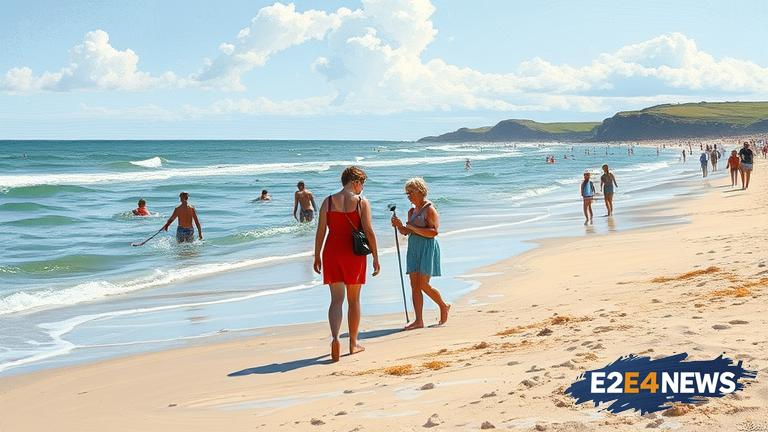As the summer season kicks off, British travelers are flocking to beaches around the world, eager to soak up the sun and enjoy the surf. However, with the increased foot traffic comes a heightened risk of accidents and incidents, highlighting the need for beachgoers to be aware of and practice vital beach safety and etiquette. Experts are urging Brits to take the time to learn essential skills, such as how to identify and respond to rip currents, how to perform basic lifesaving techniques, and how to respect local environments and wildlife. By doing so, travelers can not only ensure their own safety but also help to protect the delicate ecosystems of the beaches they visit. One of the most critical skills to learn is how to spot and escape a rip current, which can quickly sweep even the strongest swimmers out to sea. According to the Royal National Lifeboat Institution (RNLI), rip currents are responsible for a significant number of beach rescues each year, and can be deadly if not recognized and responded to promptly. To avoid getting caught in a rip current, swimmers should always check the conditions before entering the water, and be aware of their surroundings while swimming. If they do get caught in a rip current, they should remain calm and swim parallel to the shore, rather than trying to swim against the current. In addition to learning about rip currents, beachgoers should also be aware of other potential hazards, such as strong waves, sharp rocks, and marine life. They should also take steps to protect themselves from the sun, heat, and other environmental factors, such as wearing sunscreen, staying hydrated, and taking regular breaks in the shade. Furthermore, travelers should be mindful of their impact on the local environment, and take steps to reduce their waste and respect local wildlife. This includes not littering, not touching or standing on coral reefs, and not feeding wild animals. By taking these simple steps, Brits can help to ensure a safe and enjoyable beach experience, not just for themselves, but for others and for the environment. Moreover, learning about beach safety and etiquette can also enhance the overall travel experience, allowing travelers to feel more confident and connected to the places they visit. As the summer season gets underway, it’s essential for British travelers to prioritize beach safety and etiquette, and to take the time to learn the vital skills and knowledge needed to stay safe and respect local environments. With a little knowledge and awareness, Brits can enjoy a fun and relaxing beach vacation, while also helping to protect the world’s precious coastal ecosystems. In fact, many popular beach destinations are now offering beach safety and etiquette courses, which provide travelers with the opportunity to learn from local experts and gain a deeper understanding of the local environment. These courses often cover topics such as marine conservation, beach ecology, and water safety, and can be a great way for travelers to give back to the local community and enhance their travel experience. Ultimately, by prioritizing beach safety and etiquette, Brits can help to create a positive and sustainable impact on the places they visit, and ensure a safe and enjoyable beach experience for themselves and others. As the demand for beach vacations continues to grow, it’s essential for travelers to take responsibility for their actions and to prioritize beach safety and etiquette. By doing so, they can help to protect the world’s beaches and coastal ecosystems, and ensure a safe and enjoyable experience for generations to come. With the right knowledge and awareness, Brits can make a positive impact on the environment and local communities, and enjoy a fun and relaxing beach vacation. In conclusion, beach safety and etiquette are critical components of any beach vacation, and Brits should take the time to learn vital skills and knowledge to stay safe and respect local environments. By prioritizing beach safety and etiquette, travelers can help to create a positive and sustainable impact on the places they visit, and ensure a safe and enjoyable beach experience for themselves and others.
